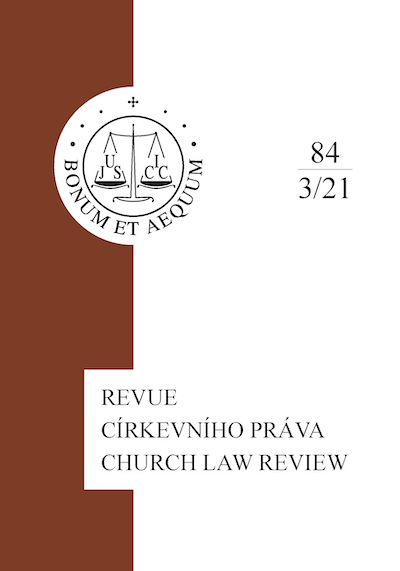Diecézní zákonodárství ve středověkém Polsku
Diocesan Legislation in Medieval Poland
Author(s): Pavel Otmar KraflSubject(s): Canon Law / Church Law, History of Religion
Published by: Společnost pro církevní právo
Keywords: ecclesiastical legislation; diocesan statutes; diocesan synod; Poland; Middle Ages
Summary/Abstract: Synodal legislation in medieval Poland and the Polish-Lithuanian Union represents a rich set of provisions relevantly responding to the needs of the particular Church. The article briefly introduces the statutes of dioceses based in Gniezno, Poznań, Cracow, Wrocław, Płock, Włocławek, Lviv, Przemyśl, Lutsk, Chełm, Vilnius and Kamień Pomorski. The Kraków Diocesan Statute of 1320 and the Płock Diocesan Statute of 1398–1423 represent systematic elaboration of particular church law, significantly outnumber other statutes and have the character of codifications. In some diocesan statutes, the pastoral or penitentiary practice of parish priests is regulated in detail. The statutes contain provisions common for synodal legislation, especially in the area of the relationship between secular power and the Church, property and administration of the Church, the life of the clergy, the administration of the sacraments, and marital law.
Journal: Revue církevního práva
- Issue Year: XXVII/2021
- Issue No: 84
- Page Range: 59-70
- Page Count: 12
- Language: Czech

